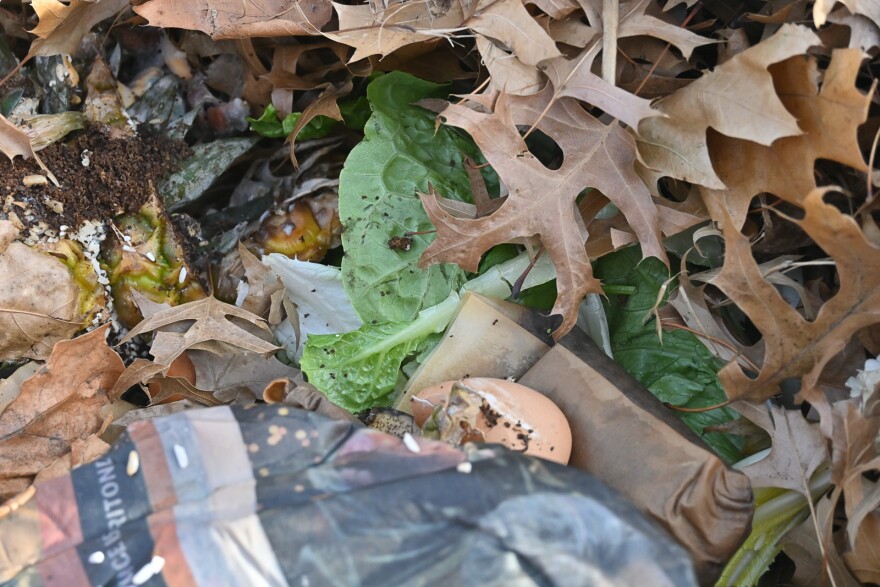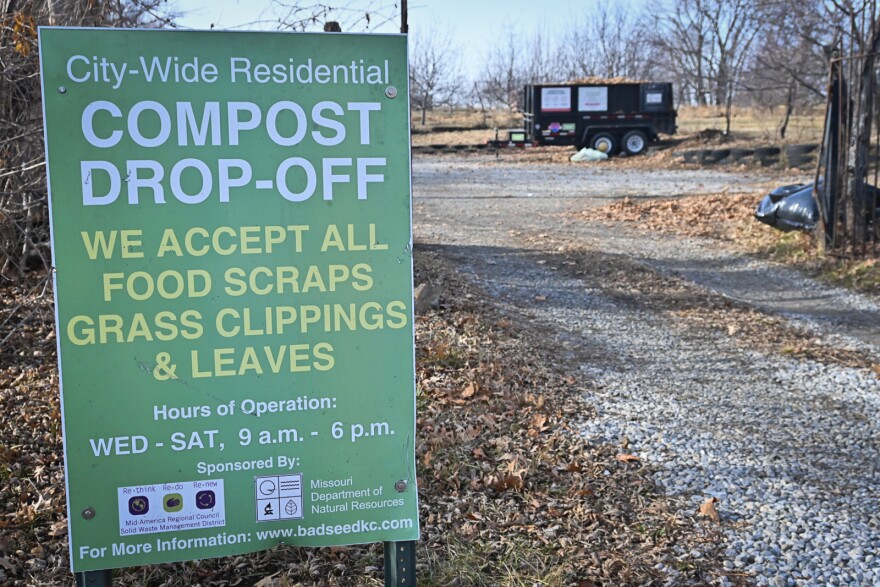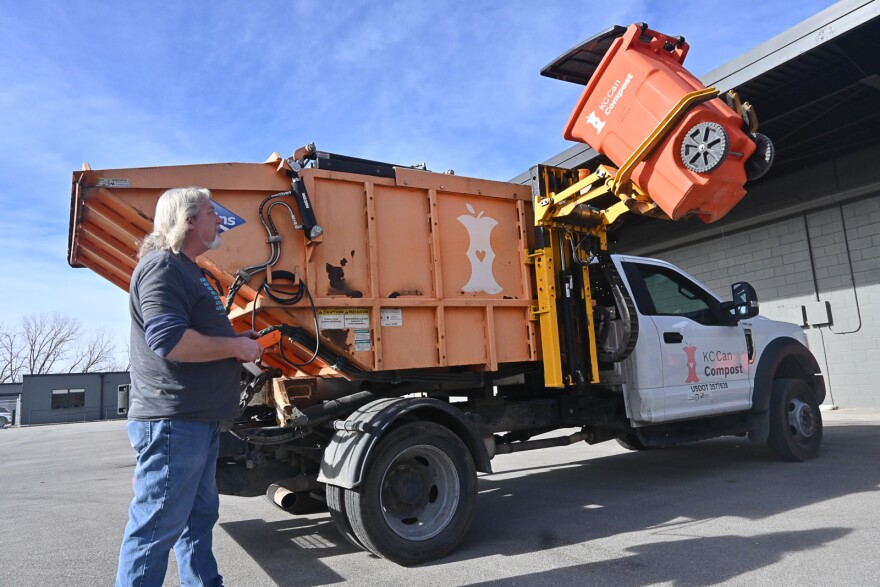The city of Olathe started the year testing out a program for residents to turn their food waste into compost. It’s the first such initiative in the Kansas City area — one that environmental advocates hope will serve as a model for other cities.
Olathe is paying Missouri Organic Recycling in Liberty around $200 a month to haul away food scraps, which locals can dump for free at a designated site.
Missouri Organic will sell the resulting compost commercially, with a portion sent back for Olathe residents to use free of charge.
A city spokesman says they expect the cost of the service will be offset by the reduced weight of trash headed to the landfill. And in the coming months, Olathe hopes to expand the program to even more residents.
“Hopefully what it shows is that it can be done, and the public here in the Midwest is ready for programs like this and it continues to build on itself,” says Kevin Anderson at Missouri Organic.

For anyone who doesn’t live in Olathe, though, the ways to get into composting are a lot less obvious.
Luckily, several nonprofits around Kansas City offer curbside services or drop-off locations so residents can compost their food waste instead of contributing to landfills.
Why should you compost your food waste?
Karen Ramsey, the co-founder of Food Cycle KC, says climate change is forcing many people to think about how they can reduce their carbon footprint.
“The need is there,” Ramsey says. “And composting is a very straightforward solution to multiple problems that we have.”
The problems lie, she says, in how food scraps get trapped beneath the earth in landfills. There they decompose, releasing methane gas into the atmosphere — a major contributor to global warming.
As an alternative, organizations like Compost Collective KC and Food Cycle KC instead deposit food scraps from their customers on their farms to mix with dry yard waste and other organic materials. That resulting compost can be used like fertilizer, bringing micronutrients to gardens and balancing the soil composition.

“Compost is fantastic for soil,” Ramsey says. “The more that we can do to improve our soils and help our farmers, that’s always important.”
Not only does that help reduce carbon emissions and save landfill space, advocates say, adding compost to soil returns nutrients to the ground and helps it soak up water, preventing runoff.
“It’s not like your recycling that disappears into a black hole these days,” Ramsey says. “You can tangibly see what’s happening to it.”
Jerusalem Farm in northeast Kansas City has run a neighborhood composting program since 2013.
“I think people are starting to think more about the environment and the way that their day-to-day actions can be a positive or negative influence,” says program director Jordan Schiele. “I think with a lot of different cultures in the northeast that are coming from farming, agriculture societies, they understand the importance of turning waste into fertilizer.”
NPR also has these helpful tips for reducing your food waste in the first place, from being more mindful of your fridge while shopping to using ingredients to their fullest extent.
Where can I compost my food waste around Kansas City?

Kansas City residents who want to get into composting can do so at home, by building waste piles or wood-and-wire bins, but it can be a messy and pretty scientific process. The Missouri Department of Natural Resources offers a homeowner’s composting guide to help people get started.
For many people who live in apartments or condos, though, there’s no space for a dedicated compost pile.
Instead, Kansas City-area residents can sign up for a subscription program for compost pickup, or drop off their waste at dedicated locations on their own time.
KC Can Compost offers commercial and residential composting services. For a flat fee of $12.99 a month, subscribers are given a composting can with a liner, which they can bring to one of 10 drop off locations across the city. KC Can will be adding electronic kiosks around the city this spring that are operated and located with a phone app, so customers can drop off their bins at any time.
KC Can does not offer curbside service for residential customers.
Compost Collective KC provides a compost bucket for a one-time $10 fee and offers curbside collection services. Starting at $20 a month, customers can have their bucket picked up at weekly or biweekly intervals. Compost Collective recommends checking their website for eligible zip codes — and they’re currently running a deal to provide the first month of service free.
If you live outside of their curbside service area, Compost Collective also runs a bin swap, where people can exchange their full compost bucket for a fresh one at a handful of locations around the metro. Each swap costs $8.
Finally, Compost Collective partners with Urbavore Urban Farm, where anyone can drop off eligible food scraps, yard waste and other organic material for free.
For people on the Kansas side of the metro, Food Cycle KC offers residential and commercial collection. They provide residential customers small buckets starting at $16.50 a month. Commercial clients can get larger containers for weekly or even more frequent collection.
Jerusalem Farm in northeast Kansas City provides a composting program for residents in the Pendleton Heights neighborhood. Subscribers can pay $20 monthly fee and have their waste collected from home every Tuesday. It’s then delivered to the farm to be composed and used in their garden and orchard.






